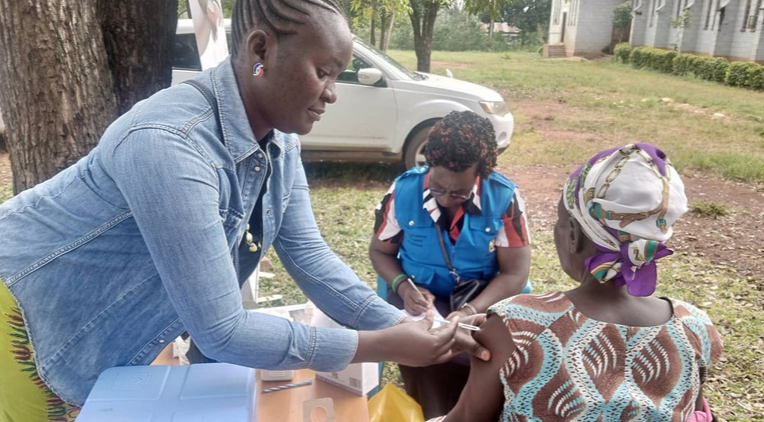By Christiana Fashola, COVID-19 Vaccine Adviser
During World Immunisation Week, the World Health Organization (WHO) launched a global call to catch up on vaccines missed due to the disruptions caused by the COVID-19 pandemic.
But “The Big Catch-up” only focused on reducing missed vaccinations among children.
If we want to ensure we get back on track after the disruption caused by the COVID pandemic, health services must ensure people of all ages, including older people, receive the immunisation they missed.
The COVID-19 pandemic disrupted routine immunisation services all over the world, leading to a massive backlog of missed vaccinations.
This backlog applies to older adults as much as to children. If we truly want to recover from the pandemic, it is vital to also prioritise adult vaccinations, especially, for older people who are at a higher risk of severe illness from vaccine-preventable diseases.

© ACF Kenya
COVID exacerbated existing inequalities for older people
The disproportionate impact of COVID-19 on older people clearly indicates that they were left behind in the COVID-19 responses.
The WHO estimates that 85% of excess mortality during 2020 and 2021 was in low-and middle-income countries, totalling 12.7 million deaths. Over three-quarters of these deaths were among older people.
A lifetime approach to vaccination
If we learned one thing from the pandemic, it must be the importance of vaccination.
It highlighted the critical importance of vaccination at all ages. This makes it imperative for governments to not only address missed childhood vaccinations but also establish a platform for life-course inoculation. Integrating health programmes is progressing toward achieving universal health coverage.
It is crucial that the implementation of “The Big Catch-up” initiative applies lessons learned from COVID-19 vaccinations. Governments must ensure vaccine distribution efforts are efficient, equitable, and accessible to all ages. “The Big Catch-up” could make a real difference if it provides an opportunity to build a platform for a life course approach to vaccination.
As we age, our vaccination needs change, and the spread of some diseases can be prevented with vaccines recommended for adults. If we are to build resilient health systems to manage future pandemics, restoring pre-pandemic vaccination levels and preparing the roll-out of new vaccines must reach everyone, regardless of their age.
The evidence of several assessments of missed opportunities indicates that the potential benefits of integrating immunisation services with other health programmes – increased immunisation coverage, reduced mortality and morbidity, improved use of health resources – has not yet been achieved.
